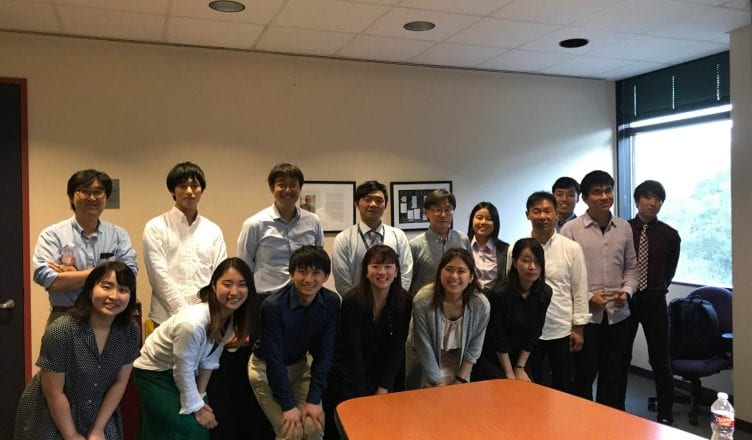The 2018 Nakatani RIES Japanese Fellows concluded their research experience in the U.S. with the presentation of a research poster, in English, on the research project they had conducted at Rice University. This colloquium enabled the Japanese Fellows to present to a diverse and interdisciplinary audience comprised of faculty and students from a wide array of science and engineering departments at Rice University.
The final poster session was held on Friday, September 14, 2018 in Duncan Hall at Rice University. Colleagues from the Georgia Institute of Technology, University of California, Davis, and Harvard University also attended and served as judges. Three students were recognized with awards for ‘Best Undergraduate Research Poster”
- Yui Kanaoka (Nagoya University) who conducted research in Prof. Ching-Hwa Kiang’s lab in the Department of Physics & Astronomy on “Probing Cancer Cell Mechanism Using Single Cell Atomic Force Microscope”
- Mari Shishikura (Kyoto University) who conducted research in Prof. Devika Subramanian’s lab in the Department of Computer Science on “Analyzing DKA Diagnosis After Onset Date Using Machine Learning”
- Gen Hayakawa (University of Tokyo, The) who conducted research in Dean Reginald DesRosches’ lab in the Department of Civil and Environmental Engineering on “Seismic fragility analysis of building structures using equivalent SDOF systems”
- Honorable Mention: Yuki Kitanishi (University of Tokyo, The) who conducted research in Prof. Gang Bao’s lab in the Department of Bioengineering on the “Efficiency of SSA Assay in Quantifying CRISPR/Cas9 induced DNA Cutting Activity”
A huge congratulations to all of our 2018 Japanese Fellows for the successful completion of their research projects and 6-week program in the U.S.!
To learn more about our student’s experiences living in Houston and doing research at Rice University, click their names below to review their website profiles and excerpts from their weekly reports.
Special thanks to Dr. Gayle Moran in the Rice Center for Engineering Leadership and Kyung-Hee Bae in the Center for Written, Oral, and Visual Communication for providing seminars on poster development and practice presentations coaching sessions for our 2018 Japanese Fellows.
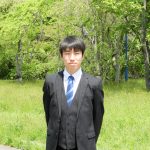 |
Mizuki Abe
|
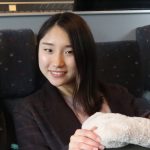 |
Chihiro AkiyamaHometown: Kyoto “I was amazed by how many people, who didn’t know us, were working for us trying to give us good experiences. How many people I met? How many people I talked to? How many people thought about our future with us? I am pretty sure that I have never seen so many people in this short a period of time. I learned that I have people who will be willing to help me out if I can show them I want to try something and work hard towards it. This made me excited because I felt that there are many more possibilities in front of me with those people. There is another thing which made me excited about my career: the diversity of careers of the people I met. The careers that people are working in now are not necessarily what they studied during their college life. There are not exactly in the same field, but they are applying and using what they learned for what they are doing right now. Life is unpredictable… Maybe this is not the exact same path I will take, but there should be ways to use that somewhere in my future.” ~ Chihiro Akiyama |
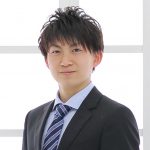 |
Gen HayakawaHometown: Chigasaki, Kanagawa “… one of the most important things I learned in this program is about the research environment of the U.S. universities. I think that this opportunity is the biggest thing that makes Nakatani RIES different from other programs. In such a short period program (like a couple of months), we generally just have opportunities to go to foreign universities and just take classes. On the other hand, in this program, we are able to conduct a research project in a lab as well. By doing research in the lab, we can communicate with other students who are seeking a Ph.D. and network with professors. I feel most Japanese students don’t think of getting Ph.D. abroad and the main reason why they don’t is that they don’t know much about it. I was like this before I participated in this program. During Nakatani RIES I had a lot of opportunities to talk with Ph.D. students from foreign universities and I learned many things about graduate school in the U.S., which broadened my horizons. ~ Gen Hayakawa |
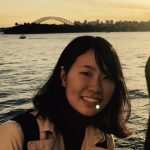 |
Mariko HisamatsuHometown: Fukuoka “Through the Nakatani RIES Fellowship, I tasted a flavor of life in laboratory in U.S. this summer. This was a great experience for me, because honestly I had been thinking of studying abroad in my Ph.D. career but I had not yet had the opportunity to go abroad myself. In my opinion, all university students in Japan should go abroad at least once to compare which future path to take: domestic or international. You can find not only the merits of international collaboration but also the place where you want to live. Even if you still choose graduate school or a job in Japan after your experience overseas, it makes you more confident about your choice.” ~ Mariko Hisamatsu |
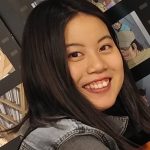 |
Chiaki ImafukuHometown: Kyoto “I would say that the research was the most important thing I learned though the Nakatani RIES Program. Having international research experience is very important for Japanese students because through this we can know more about what we are going to do in future, so we can be focused and our motivation for learning will rise. If we learn about how research is conducted in US, we can take the good customs from the US and bring them back to Japan so that Japanese research will grow.” ~ Chiaki Imafuku |
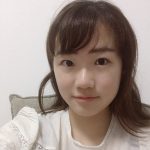 |
Yui KanaokaHometown: Shiga “This program made me notice various things such as diversity or the character of people. I want to be a person who can accept different ways of thinking.” ~ Yui Kanaoka |
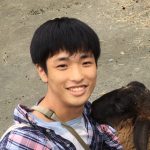 |
Yuki KitanishiHometown: Tokyo “I found that it is important for students in science fields to be given opportunities to do research abroad. In general, if Japanese university students seek chances to study abroad using their short-term vacation, we will only find programs focused on becoming more familiar with English. Even though we may find some programs where we can study something other than English, they are mostly about humanities and not related to science. However, the Nakatani RIES program is different from other programs in that it is a “science” program and even gives us the opportunity to join in a lab to do research by ourselves. After I finished this program, I learned not only about the lab environment and research culture in U.S., but also how exciting research is.” ~ Yuki Kitanishi |
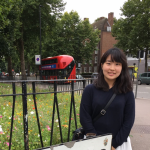 |
Moe NakanishiHometown: Fukuoka “Through this program, young Japanese students will get advantage to learn what they do want to do in their future career and how they can design research by challenging themselves to conduct research. They can broaden the possibilities of going to graduate school in the U.S. Until you try to do research, you cannot know if you will like it or not. If you realize you like it at young age, you can gain more possibilities such as doing internships and pursuing a PhD degree in overseas. Early experience overseas will help you in terms of your relationships with co-workers as well. The English language itself can be acquired even in Japan, but building your communication skills is not always easy. Also, students can learn what you should do in order to conduct research successfully.” ~ Moe Nakanishi |
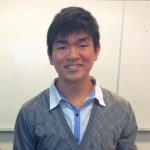 |
Ryotaro OkabeHometown: Tokyo “In my research, there were both successful experiments and those which finished as failures. The biggest thing I learned in this program was the importance of perseverance. Even if I cannot reach satisfying result, I will never lose my curiosity toward natural phenomena and the application of it toward the real world… I [also] learned the importance of networking with various people. If we spend time in only our home university, we meet people who have relatively similar ways of thinking. In the 2018 Nakatani RIES program, on the other hand, I met many people in a short period of time. There were lab members from different countries. Other Japanese Fellows that are majoring different subjects, and they knew about thinks that I did not know very much about. Also, I had the chance to meet graduate students from Japan who are studying in the U.S. and talk with them about the difference between Japanese education and that of the U.S.” ~ Ryotaro Okabe |
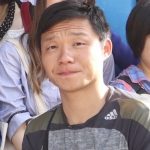 |
Katsuya ShiratoriHometown: Shizuoka “[Before], I wondered why people who got Ph.D. degree made it. The answer I found through this program is passion. Most of the people I met during this program are passionate about their own research or projects. They look like they are having more fun than any other people. What you are passionate about makes you great, I believe.” ~ Katsuya Shiratori |
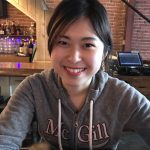 |
Mari ShishikuraHometown: Kyoto “By participating in this program, I have learned to strive for my goals outside my comfort zone. This program sets several concrete goals for the participants and also, since I have written some essays during the application, I had developed my own personal goals as well. Having these concrete objectives made my stay in the U.S. much more challenging and valuable… In the age of globalization, I think there is so little you can do within where you grew up in, but so much you can achieve once stepping out of your comfort zone. I think experiencing how work is done in the U.S. will inspire you how you want to form your lifestyle. There are aspects that match your personality and those you are not comfortable with… Overall, I believe having a broader and deeper perspective will give you helpful insights when you have life-decisions to make.” ~ Mari Shishikura |
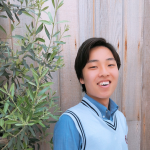 |
Shuhei TsuriyaHometown: Osaka “Through this program, I had a lot of opportunities to take seminars on developing my career path, and I talked about this a lot with professors and Ph.D. students. For example, in the 2nd week, we had a panel discussion seminar with about six Japanese Ph.D. students at Rice University. They talked about their career path and how to enter an American graduate school, which was really helpful for me to consider my own career path. Thanks to these seminars, I learned how difficult it is to do a Ph.D. degree in an American university, and how to prepare for the application process. These seminars broadened my career path, and it is very important for students to understand the process of applying to American graduate schools because it take a lot of time to prepare.” ~ Shuhei Tsuriya |
